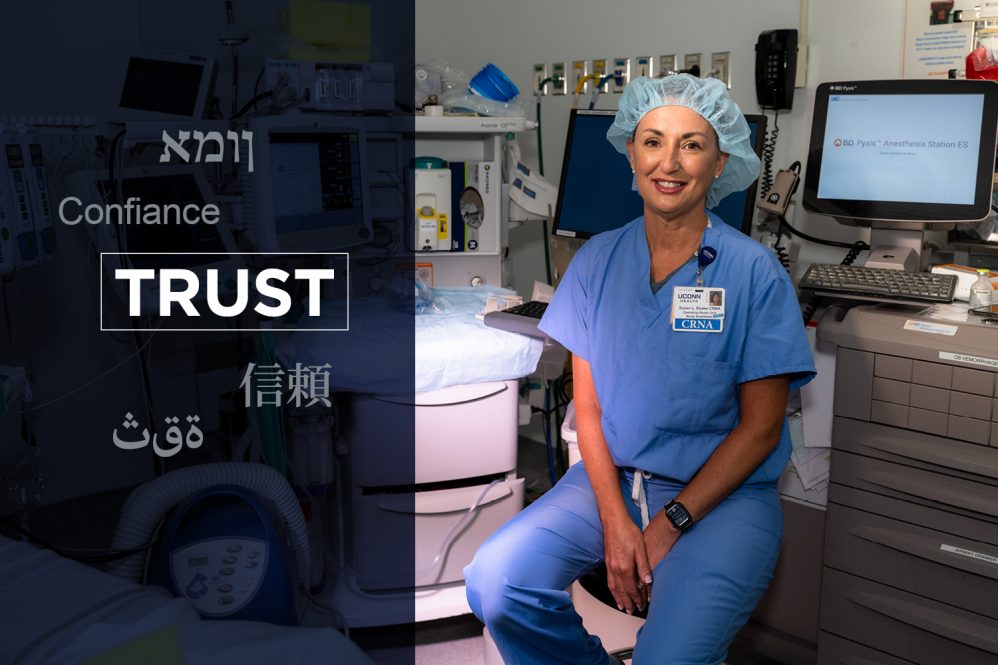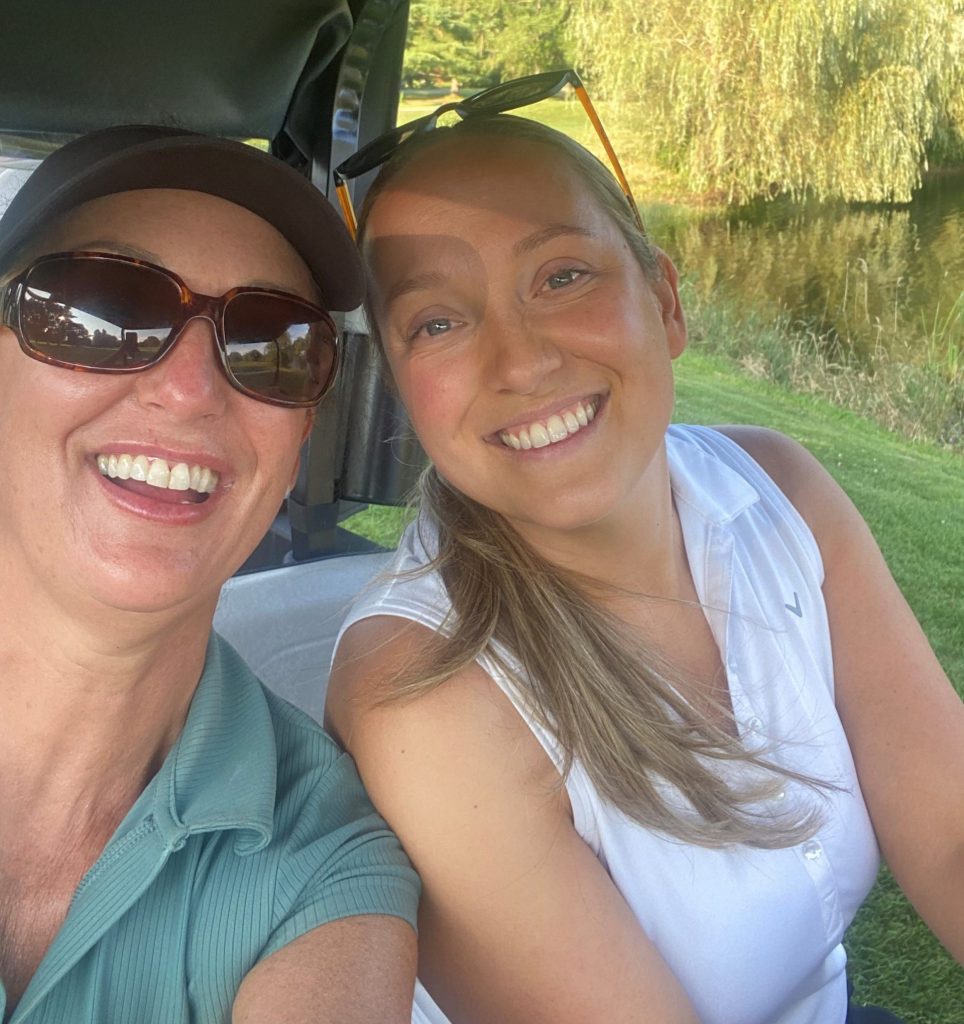Susie Shafer is a certified-registered nurse anesthetist (CRNA) at UConn Health

Susie Shafer, CRNA in the operating room of UConn John Dempsey Hospital (UConn Health Photo/Tina Encarnacion)/
Patient care, especially when it comes to surgery, is all about the trust between providers and patients.
Just ask UConn Health's Susie Shafer, CRNA, of Burlington. She's been a certified-registered nurse anesthetist caring for patients in the operating rooms and labor & delivery for 8 years across UConn Health.
"Trust is absolutely everything!" says Shafer who works daily in the pre-op area and operating rooms as the main point of contact for individual patients having surgery with anesthesia along with OR nurses. CRNAs like Shafer play critical supportive roles to both the surgeon and the anesthesiologist physicians who have already established trust with the patient first.
"It is so important to gain trust with a patient in a very short period time at the bedside before surgery," she says. "As a CRNA I do everything to gain trust, and ensure a patient has a good experience before they go to sleep for surgery."
Shafer heartwarmingly adds, "I see each of my patients as a person. I treat every patient as if they were part of my own family. I always tell each patient and their family that I am going to watch over them as if they are my beloved family member."
Shafer shared that becoming a CRNA is a true commitment, but well worth it. She was educated as a nurse at nearby CCSU, then gained two years of required experience in ICU/critical care nursing before completing a 30-month CRNA training program, with an added two years of required OR experience.
She was then working at another Connecticut hospital when a former colleague and friend who moved to UConn Health was raving about the institution and its people.
"My friend told me I would really like it here at UConn Health. I gave it a try, and I really did. It was a great career move," Shafer says.
CRNAs have very busy days. For example, Shafer could be in one of over 20 different anesthetizing rooms a day. Each night before surgery, CRNAs like Shafer get their patient case assignments for the next day to review, do any necessary advance research, and await the first patients in the OR at 7:30 a.m. CRNAs get to the OR room well in advance to perform very important set-up, check anesthesia machines, prime the ventilator, and checks of the blood pressure cuffs, pulse oxygenators, IV pumps and other critical patient care equipment.
"When you are caring for a patient during surgery it's a whole team you are working with - and the patient is at the top of our team approach's peak. We always want to give the patient the highest-quality care, safety, and the best patient experience possible," stresses Shafer.
As a former RN and now a CRNA, she applauds all the nurses collectively at UConn Health too.
"From the OR to L & D, the nurses at UConn Heath are the best people. I learn from all of them everyday and we perform better and better together," Shafer says.
She is also proud of UConn Health and the academic medical center's teaching hospital's extraordinary growth and steadfast patient safety excellence.
"UConn Health just gets better and better every year!"
Mentoring Matters
Molly McGrath, CRNA, of Unionville has been a colleague of Shafer for the last 3 years working alongside her at UConn Health.

"I love Susie. She's been a great mentor to me," warmly shares McGrath who trained to be a nurse at Central Connecticut too. She then worked as a nurse in Washinton, DC and trained to be a CRNA at Georgetown University.
"I heard that UConn Health took really good care of their staff during COVID, and it's a great place to gain experience across surgical specialties," says McGrath which led to her decision to move back to Connecticut to be part of the CRNA team at UConn Health in 2021.
"Working in the anesthesia field and the ORs at UConn Health, CRNAs create really good relationships with our patients but also our work colleagues. We even choose to have our own surgeries with our UConn Health surgeons," says McGrath.
McGrath was inspired to become a CRNA after watching a longtime family friend work as one.
"I always wanted to be like her, I even had a chance to shadow her work as a CRNA as a nursing student," she shares.
"Becoming a CRNA is the best decision I ever made. It is the best profession," says McGrath. "I love coming to work at UConn Health. It is a unique place and a very well-trusted institution."
McGrath adds, "CRNAs are a valued part of the team here, and we are very grateful. At UConn Health you can always trust the people on your care team or work team. They have your back."
McGrath stresses like Shafer that patients are always the number one focus every day along with the importance of building trust with each of them.
"Patients choose their surgeon, they don't have the opportunity to choose their CRNA," says McGrath. "They put their lives in our hands. That's why patient's need to be able to put their complete trust in us and our top care every day."
On their surgery days, McGrath makes a promise to each patient that she is honored to take care of.
"This is a scary day, but I promise to take care of you as part of my own family, and watch over you as if you are my mom or my sister," says McGrath who often is responsible for taking care of two lives when it comes to OB/GYN surgery or procedure case needs.
Quality also set's UConn apart says McGrath and makes her proud to work at UConn Health.
"UConn Health is always up to date on the latest medical literature, innovative care, and technology, and finding new ways to offer the best care possible. We are a teaching hospital. We always have new doctors, residents and students fueling our excellence," she concludes.






